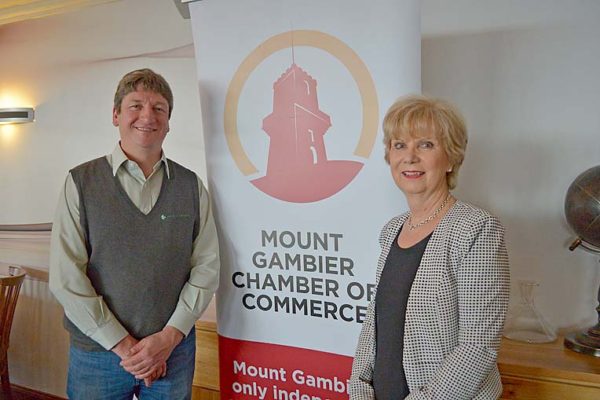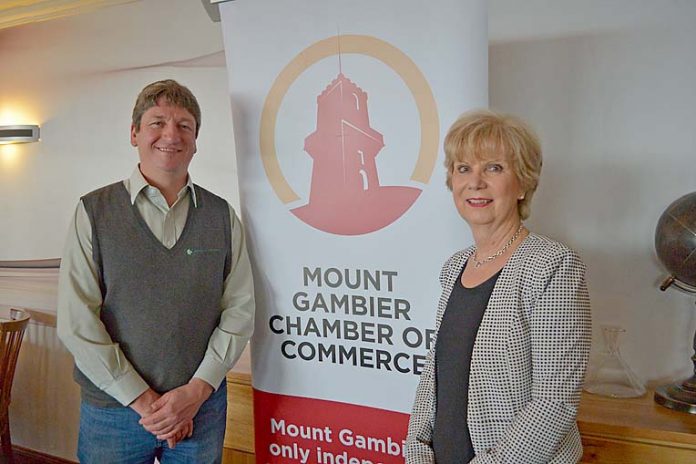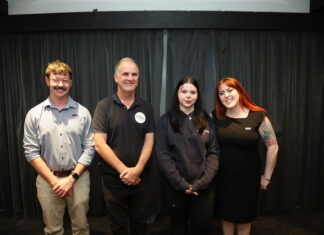
A KEY timber industries professional called for greater integration when he commented publicly on the sustainability of forestry in the South East this week.
Speaking at the monthly Mount Gambier Chamber of Commerce meeting, International Timber Solutions manager Gerret Springer said the Australian timber industry was dominantly a domestic market with a lack of diversification.
“There is a concentration of ownership of forests in the South East – when I came here in 1995 there were a lot of state-owned forests and now they are mostly privately or institutionally owned,” he said.
“That is a trend that is not just here and it is nothing special for Australia, but I have also seen a concentration of ownership of processing facilities.
“There have been so many places that have closed over that time, but then places like TimberLink and those in Tarpeena are continuing to grow, the big players got bigger and the small players have gone.
“We don’t have integrated industries here, we have particleboard plants, but no other diversified industry – it is all very isolated.”
Mr Springer said local businesses should follow those in Europe, which are very integrated.
“A region can only be successful if it is integrated and every little bit that comes off the forest is finding the best possible way onto the market,” he said.
“We are one of the biggest plantation pine industries in Australia and yet we have Kimberly Clarke next door importing pulp.
“We are sitting in an area where there is a lot of resource and we have the potential to do things, but our problem is that we are so far away from the market.
“I think with a little bit of help from the government in terms of regulation, then the picture would be quite different.”
However, when asked about the construction of a particleboard plant in the region, Mr Springer said it was not something he thinks will be of a great benefit to the community.
“We will see quite a lot of competition with the plant in New South Wales, so in my personal opinion it may not be the best option because of this,” he said.
With the recent discussion throughout the community on log exportation from Portland and the concern that it is moving jobs away from the local region, Mr Springer shared some information on the current conditions in Australia.
“The general trend of log exportation out of Australia is up,” he said.
“However, up until about five years ago Russia was the biggest log exporter of softwood logs until they put a 15-year export duty on – that came to around 30pc of the value of the logs in Portland
“That is a huge significant export duty and caused Russia to move from the number one position with New Zealand taking its place.”
Mr Springer said New Zealand and Australia are the only significant log exporting companies in the world that he knows of that have free trade barriers with no restrictions and no conditions to export logs.
“The Port of Portland is trying to get more and more volume through there and they are very innovative,” he said.
“The two million cubic metres that goes out of Portland is around the same volume of what all the mills in the area are processing – we are basically harvesting double.”








